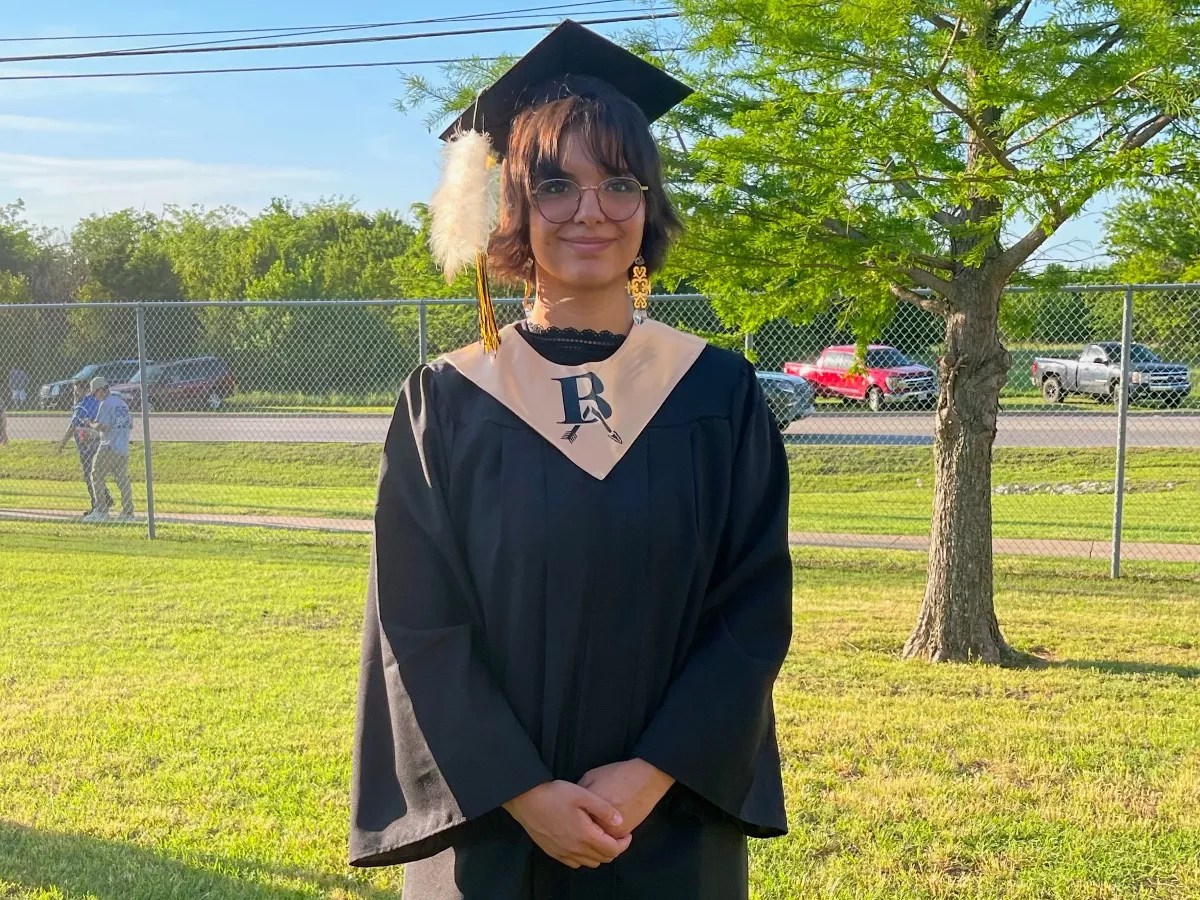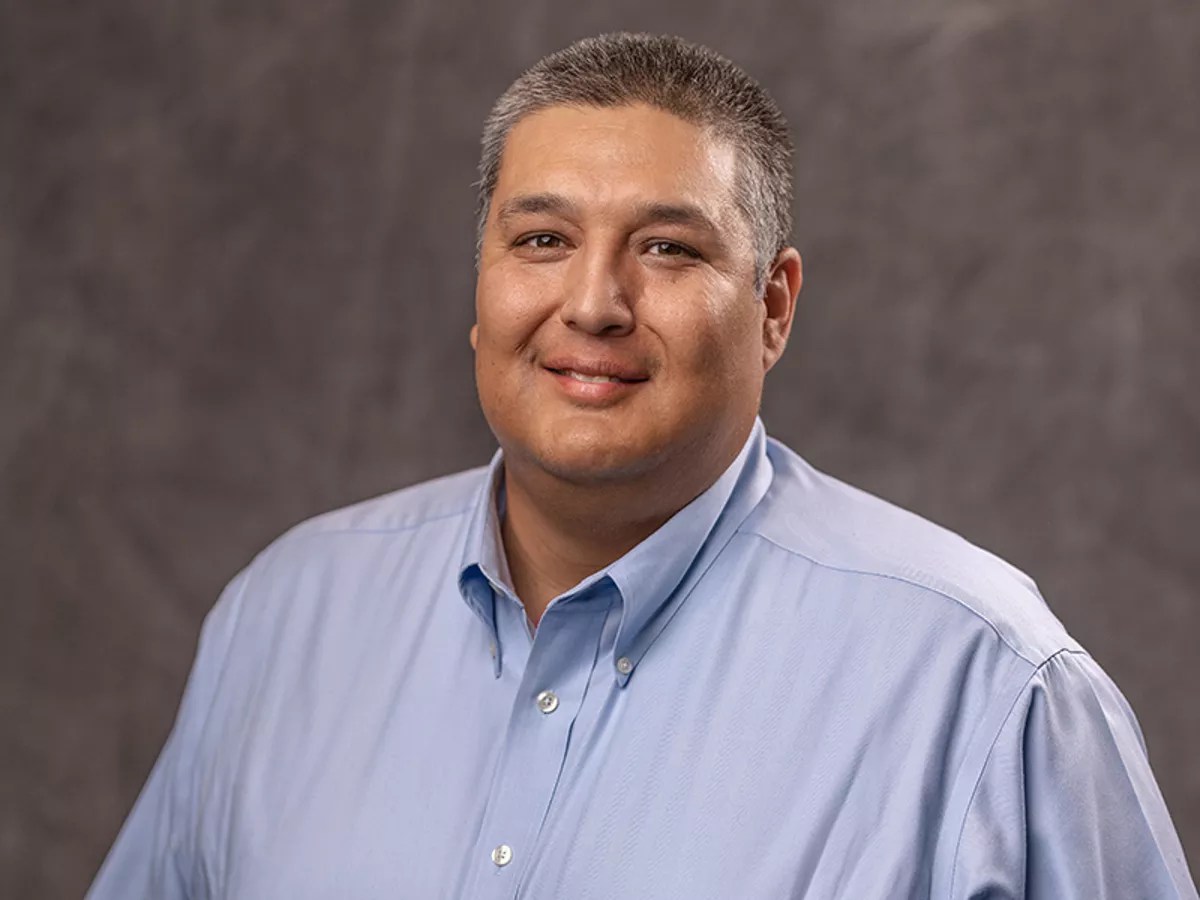
Tulane Public Relations, CC BY 2.0

Audio By Carbonatix
High school graduations often mark the first great success that a young person achieves after years of hard work and determination. But for Native Americans and Latinos living in certain parts of the United States – including Colorado – they’ve become a fiery topic of debate.
In recent months, members of these communities have come under attack for donning cultural and religious items with their graduation regalia. The Native American Rights Fund, headquartered in Boulder, just filed a lawsuit in Oklahoma after staff members at a high school there tried to remove an eagle feather off the graduation cap of a student mid-ceremony.
Then, on May 24, Naomi Peña Villasano – a Mexican-American student at a Garfield County high school in Colorado – filed a lawsuit against her school district after being denied the chance to wear a sash with the colors of the two flags that represent her heritage: Mexico and the U.S.
Garfield County District 16 administrators gave the honor student the following ultimatum, according to the suit: “She cannot cross the graduation stage and receive her diploma wearing her sash.”
“Without intervention by the Court, Naomi will be forced to choose between exercising her right to free speech and receiving her diploma on the graduation stage in front of her community and family members,” the lawsuit alleged.
On May 26, federal Judge Nina Wang sided with the Garfield County school district, ruling that “the sash is school-sponsored speech” and cannot be altered or customized.
“Naomi argues that wearing her sash at graduation is private speech, subject to enhanced protection,” Wang writes in her decision. “She does not dispute that the graduation ceremony is, itself, a school-sponsored event.”
However, backed by a petition with nearly 6,800 signatures, Peña wore the customized sash anyway, the Glenwood Springs Post Independent reports. Her district plans to reconsider the policy next year.
The sash – given to her by her older brother as a graduation gift – bears both the eagle and serpent emblem and red, white and green colors of the Mexican flag on the right and the stars and stripes of the American flag on the left.
“I’m a 200 percenter – 100 percent American and 100 percent Mexican,” Peña, whose grandfather migrated from Jalisco, said at a May 16 District Board of Education meeting.
“I was born in the United States, but my parents are Mexican immigrants who came here for a better life,” she added. “They have sacrificed and provided for me in so many ways that I am so beyond grateful for.”
Peña was looking for the court to declare that the Garfield County School District broke the law by denying her right to free speech and to wear the U.S. flag, which is guaranteed in the Colorado Constitution. She was seeking relief payment from several district officials, including Superintendent Jennifer Baugh and school board president Lynn Shore.
“The issue was never about a flag from a specific country,” Baugh said in a statement. “The issue is that moving away from our rules opens the door to all manner of expression with graduation garb, which we believe would discourage the unification of our graduates.”
The Oklahoma lawsuit, which was filed on May 15, takes aim at the Broken Arrow School District, located in its namesake city, just outside of Tulsa.
High school student Lena’ Black, who is a member of the Otoe-Missouria Tribe and of Osage descent, tried to wear an eagle feather on her graduation cap in May 2022, only to be “accosted by two school officials” who tried to remove it during the ceremony, the suit says.
David Gover, an attorney with the Native American Rights Fund who is representing Black, says they are “just getting started” on the case, which was filed on May 15. Pipestem Law, an Oklahoma firm specializing in Native American rights, is also representing Black.

Lena Black, a member of the Otoe-Missouria tribe and of Osage descent, tried to wear an eagle feather to her high school graduation, only for school officials to forcibly remove it. She’s now suing.
Courtesy of Native American Rights Fund
Unlike Peña, Native American students face “religious freedom issues” when trying to wear eagle feathers, Gover says. Many Native American communities “consider eagles to be spiritually significant,” according to NARF, and “believe that eagles carry the peoples’ prayers, and as eagles roam the sky, they have a special connection with the Creator.”
The group adds: “Their feathers represent honesty, truth, majesty, strength, courage, wisdom, power, and freedom. The United States government has long recognized the importance of eagles for Native religious and spiritual beliefs.”
Black received her eagle feather when she was three years old, during a sacred pluming ceremony. It was “physically and ceremoniously damaged” when school officials tried to take it, according to her lawsuit.
“The unnecessary, traumatic experience ruined Ms. Black’s graduation experience, a day of celebration for her, her family and her community,” the suit alleges. “High school graduation is a deeply significant event for Ms. Black and other Native American students who wish to practice their religious beliefs.”
The suit also notes that “some students also wore religious items like crosses and hijabs” and “various secular stoles, cords and other items.” Black allegedly tried to explain the feather’s importance while officials were attempting to remove it, but collapsed to the ground as she started to suffer an anxiety attack, her suit charges. She and NARF are now seeking damages, including $50,000 in compensation and more for punitive damages.
Gover tells Westword that he sees some “overlap” between Peña’s situation and his fight with the Broken Arrow School District.
“A lot of tribes are also issuing those stoles and those cords in recognition of their culture and tribal affiliation,” Gover says. “That’s where I might see some synergy when you think about Mexican-American stoles. To me, that highlights the right to free speech and protection against viewpoint discrimination. I do see some overlap there.”
NARF has been involved with religious freedom since its inception in 1970, according to Gover, but the Colorado organization has found itself dealing more with issues concerning graduation regalia over the past decade.
On May 4, Governor Jared Polis signed a law protecting Native American students who want to wear cultural or religious items with their graduation regalia. A day earlier, Oklahoma Governor Kevin Stitt vetoed a bill that would have done the same for graduating students in his state.
Governor Stitt said in a statement that the decision should be left to local school districts, but Gover contends that Black’s case is “exactly what happens” when that is done.
Meanwhile, Polis’s signing “makes it clear that Colorado stands with religious freedom,” Gover says.

David Gover, attorney for the Native American Rights Fund, advises parents and students to let their schools know as soon as possible if they intend to wear cultural or religious regalia during graduation.
Courtesy of the Native American Rights Fund
Only a dozen states have laws protecting Native American students’ right to wear tribal regalia or objects of cultural or religious importance: Arizona, Montana, Mississippi, South Dakota, Colorado, California, Washington, Oregon, Alaska, Kansas, North Dakota and Utah.
The laws are “fairly similar between the states,” Gover says, though some also include specific protections. For example, Alaska’s law also bans governing bodies from prohibiting “a hairstyle that is associated with race” and even specifies protections for “braids, locs, twists, tight coils, afros, cornrows and bantu knots.”
Several states, including Colorado, specify that eagle feathers and plumes are protected by the law.
Gover says passing more laws like the ones already in place is a good way for states to avoid legal attacks from upset Native American students and families, who call and notify NARF “every year” about graduation regalia that has caused controversies.
“As we see these states adopt these specific bills, [lawsuits are] less of an issue for those states,” Gover says. “These bills and these acts are making a difference.”
Oklahoma, Texas and North Carolina are states where NARF says it gets the most complaints about graduation regalia, according to Gover, since they don’t have such laws.
Colorado is the most recent to pass legislation. Montana was the first, with a bill passed in 2017. States seem to have started passing laws at the same time that NARF began getting more calls about Native American issues with graduation regalia policies, Gover says.
“I think it’s just a revitalization of students and their families wanting to exercise their right and their religious beliefs, their spiritual beliefs,” he explains. “You’ve seen in the past six or seven years a lot of students and families standing up.”
Voces Unidas de las Montañas, a Latino advocacy group in Colorado, issued a statement from president and CEO Alex Sánchez saying that Peña’s graduation drama and pending lawsuit are “evidence of the need to pass legislation clarifying that all students have the right to wear cultural regalia at any public graduation ceremony.”
In addition, Sánchez noted, “Voces Unidas has already begun working with state lawmakers to pass such legislation in 2024.” The group has launched a petition to gain support for the action.
Peña and her mother told her school in early May about her plans to walk with the decorated sash; their lawsuit alleged that district officials compared her wearing of the Mexican flag to wearing a Nazi or Confederate flag.
Gover advises anyone hoping to wear cultural or religious items with their graduation regalia to advise school officials of their choice as soon as possible to try to avoid conflict.
“The best advice I can give is for students and parents to be as proactive as they can,” he says. “If you’re entering your senior year in September or October, start planning then and make sure that you’re notifying the school district of your intention to express your religious beliefs. That will be easier now in Colorado.”